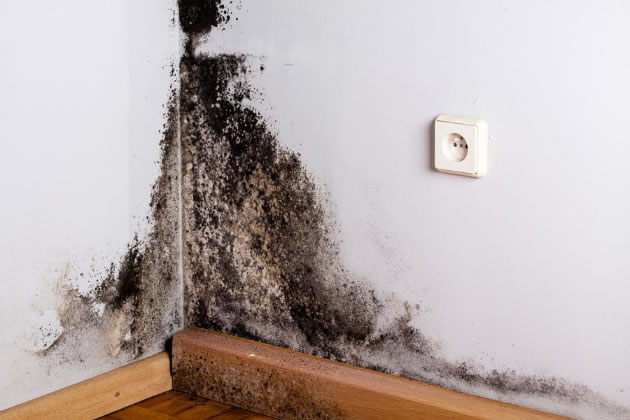Ealing Council Faces Awaab's Law Challenge
Takes over 100 days to survey mould complaints way beyond new limit

Stock photo of mould in a flat
July 10, 2025
It is taking a Ealing Council over 100 days on average to survey mould concerns in socially rented homes, far beyond what will soon become a legally binding time limit.
The introduction of Awaab’s law later this year, which forces landlords and local authorities to investigate potential mould issues within 10 working days of a report being made. However, it is currently taking Ealing Council an average of 113 days to survey mould concerns, according to council documents.
The figures appeared in a report prepared for a meeting of Ealing Council’s Overview and Scrutiny Committee on 3 July. However, the issue was not discussed by councillors at the meeting.
Earlier this year in an interview with the Local Democracy Reporting Service (LDRS), mother-of-three Shanice Aird, 31, said she had been reporting mould issues in her home to Ealing Council for several years. She claimed that when she would speak to the council, she was simply told to “wipe it away”.
She spoke of her “constant worrying” about the safety of herself and her children, including chest infections suffered by her young children which she believed was caused by the mould. At the time, Ealing Council said Ms Aird “has not told us about any concerns regarding her safety at the property”.
Shanice said it is “disgusting” that it is still taking the council so long to survey mould. She told the LDRS, “Recently I’ve seen that the council are spending all of this money buying up properties and putting money into new developments.
“They should invest into creating a special team that will go out within a week and inspect properties with mould and damp and put a report together.”
Ealing Council has recently purchased a number of homes which it says will be used to relieve pressures on the waiting list for temporary accommodation and will help to tackle the housing crisis.
The council has also told the LDRS that in preparation for Awaab’s law coming into effect in October, it has made improvements. The council also said that more money is already being invested into staff to tackle mould issues within social homes.
Awaab’s Law was introduced following the death of two-year-old Awaab Ishak. Awaab died as a result of a severe respiratory condition caused by prolonged exposure to black mould inside his Manchester home.
As of 27 October, 2025, social landlords, such as Ealing Council, must investigate potential mould hazards within 10 working days of a report being made. If an investigation confirms any potential emergency hazards, they must be tackled within 24 hours.
An Ealing Council spokesperson said, “With more than 9,000 socially rented homes to manage, repairs are a major area of work for us, and last year we completed around 36,000 maintenance jobs on our tenants’ homes. In recent years we have not always hit the high standards we have set for ourselves, but we continuously strive to better our services for our residents.
“Ahead of Awaab’s Law coming into effect later this year, we have made improvements. After a thorough review of our record keeping, resourcing, systems, processes, and culture, we adopted a new data management systems and processes.
“We are investing in more staff resource and continue to work with our two repairs contractors. We have also introduced a raft of new training for our team. We promote a positive complaint handling culture, to help us learn and continually improve.”
Philip James Lynch - Local Democracy Reporter